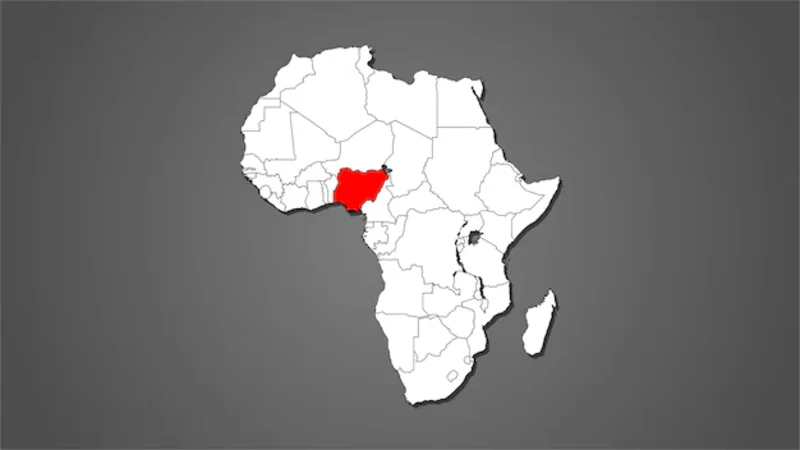
A growing number of Nigerian startups are shutting down their businesses as venture capital funding dries up and is becoming increasingly difficult to access, Business Hallmark findings have revealed.
Based on available reports, in the last six months alone, at least 32 once-promising startups have shut down businesses, with many others still battling to stay afloat, desperately looking for buyers to take them over.
On the list of startups that have gone under or trying to find buyers they can offload their failing businesses to after securing seed money running into hundreds of millions of dollars from venture capitalists are Zazuu, Paystack, KippaPay and Payday, all fintech companies.
Others are Lazerpay, a crypto and Web3 startup; 54gene, a genomics company; Okadabook, a digital publisher and e-bookstore, as well as Hytch, a Nigerian logistics startup, among several others.
One of the once-promising startups, Zazuu, a fintech company founded in 2018 by four Nigerian entrepreneurs, Kay Akinwunmi (CEO), Korede Fanilola (COO), Tosin Ekolie (CTO) and Tola Alade (CDO), shocked the tech and finance industry when it announced on November 17, 2023, that it was shutting down operations.
The firm’s management attributed the shutdown to its inability to secure additional growth funding from investors.
The company, an end-to-end money transfer marketplace that facilitated remittance payments into Sub-Saharan Africa, had in July 2023, raised $2 million to deepen its cross-border payment offering and also build the world’s first non-biased payment platform.
Angel investors that participated in the fundraising round are Babs Ogundeyi, chief executive officer of Kuda Bank and Jason Njoku, chief executive officer of IrokoTV.
Other angel investors include Launch Africa, Founders Factory Africa, HoaQ Club and Tinie Tempah.
While raising the funds just sixteen months ago, the startup assured that it would continue to grow its user base, hire more talent and scale its pay with Zazuu feature that allows users to complete transactions in-app.
“The plan for us is growth. We want to scale our solution as quickly as possible. We’re working on getting licenses that allow us to offer our service to users in other European countries before the end of the year. We’ll also be concurrently improving the product with new features that ensure that everyone sending money to Africa gets the best money transfer experience,”
Chief Operating Officer (COO), Korede Fanilola declared in July 2022.
However, less than one and a half years after raising the funds, Zazuu recently announced that it will be shutting down.
“To our friends and supporters, we have some difficult news to share. Zazuu will be closing its doors. When we started Zazuu, our mission was to make international money transfers fair for Africans. With the support of our investors and team, we made huge strides in securing regulatory approvals, building our products, and laying the groundwork for future growth. However, due to a tough funding climate, we were not able to secure a growth funding round despite exploring every option. Massive thanks to our brilliant team, our customers, who stuck with us, our investors, and partners, who bought into our vision. Your belief in us kept us going. Sure, it stings. But we’re walking away with our heads high, proud of what we built and the lessons learned.We’re still all about making financial services fair and accessible for all. We are so grateful to have shared this experience with you,"
the firm had said in the statement announcing its winding up.
READ ALSO - Mastercard Targets Three Firms for $27 Million Investment
54Gene, a genomics startup co-founded by Abasi Ene-Obong, has also initiated the folding up of its operations after securing $45 million in funding.
While Zazuu’s explanation for its decision to shut down seems plausible, 54Gene’s reason, according to financial experts, is farfetched.
The genomics startup co-founded by Abasi Ene-Obong, Ogochukwu Osifo, Damilola Oni and Gatumi Aliyu in 2019 to address the neglect of African natives in global genomics research, as well as to build a biobank of the African genome, had secured $45 million from three funding rounds.
However, it shocked many stakeholders in the health and financial sectors in July 2023 when it initiated the process of winding down its business, blaming it on the financial crisis.
“They (founders) should find other reasons to give. $45 million is about N45 billion in today’s value. What did they do with the money? Blowing it in just four years. I think they need much explanation to do,”
said Titi Aloba, an investment banker based in Lagos.
54Gene founders are also hoping to cash out of the bad situation by seeking buyers to take over the firm’s assets, including a biobank containing biological samples for research.
Also, Okadabooks, Nigeria’s pioneer digital publishing and book-selling platform, shut down on November 30 after 10 years in operations.
Set up by Okechukwu Ofili in 2023 to simplify distributing and selling books in Nigeria, Okadabooks had raised $ 1.2 million in capital from foreign investors.
In 2017, Okadabooks was among 12 startups selected for Google’s Launchpad Accelerator Africa.
“This has not been an easy choice. We’ve explored various avenues to keep our virtual bookshelves alive, but, unfortunately, the challenges we face are insurmountable,”
the company noted in the statement.
Though many of the startups blamed lack of funding for their failures and winding up, experts adduced several other reasons for their challenges, including poor leadership and mismanagement.
READ ALSO - El-Rufai Proposes $100 Million Venture Capital Initiative for Private Sector Revival
A case of poor leadership and mismanagement among the startups readily referred to by stakeholders was responsible for the fall from grace to grass of PayDay, a fintech company founded by Abia State-born entrepreneur, Favour Ori.
Established in July 2021 to provide niche financial products, such as sending and receiving money globally, helping Nigerians and other Africans to pay tuition and other fees in the United States, Canada, and the United Kingdom, the platform successfully processed over $1.4 million in transactions within three weeks of launch.
So impressed by the firm’s achievements within a very short period, the co-founder and CEO, Co-Creation Hub and current Minister of Communications and Digital Economy, Bosun Tijani, applauded the initiative, saying it will help hasten Africa’s agenda of a single market.
“Payday’s solution is extremely timely and it backs up Africa’s agenda of a single market. Making it seamless and easy to pay people in their local currency; and through multiple checkout options it’s a strong boost for AfCFTA,”
Tijani noted.
However, just about three years in operations and raking in almost $5 million in seed money, the latest being the sum of $3 million it got in April 2023, just six months ago, PayDay has raised eyebrows in the tech industry over its visioner’s bid to sell the firm.
Sources in the industry confided in BH that Payday’s founder and CEO, Favour Ori, had embarked on a spending spree immediately after he secured the seed money from investors.
According to the sources, Ori allegedly placed himself on a monthly salary of $15,000, with other top staffers collecting between $5,000 to $10,000.
“It was a bazaar while the windfalls lasted. They thought other rounds of funding would soon come, but unfortunately, the funds dried up”,
a source familiar with the story informed our correspondent.
The same scenario, BH learnt, also played out at 54Gene, with the partners reportedly fighting over how to deploy the largesse from VCs, a situation that resulted in a damaging leadership crisis.
According to available information, the leadership crisis that led to the exit of its lead founder, Ene-Obong, failed to abate, even after his exit.
Obong’s unceremonious exit, BH findings revealed, had further pushed 54Gene into disarray. In the last year, the firm had changed CEOs three times, with Ron Chiarello having the shortest reign. Chiarello had assumed office in March 2023 and left the position in July, just four months after.
Available data obtained by BH showed that Global Venture Capital (VC) funding numbers began to nosedive in Q1 2022.
The downward trend accelerated from $116 billion in Q1 2022, falling year over year to $76 billion (53% drop) in Q1 2023.
READ ALSO - Nairobi's Amini, a Climate-Tech Startup, Secures $4 Million in Seed Funding Round
Apart from the drying up of funds, other factors contributing to the collapse of Nigerian startups, our correspondent learnt, include rising interest rates in Europe and America; tumbling tech stocks and economic slowdown as a result of the war in Ukraine.
According to financial experts, while rising interest rates in Europe and America have enticed venture capitals to invest more in the money market for more profits, the end of COVID-19 resulted in tumbling tech stocks as more people daily abandon digital apps, going back to their physical ways of doing things.
Also, the war in Ukraine, which pushed up the prices of crude oil in the international market, had led to the slowdown of most world economies, as most nations tried to cut costs.
“Most Nigerian startups, just like their foreign counterparts, largely benefited from the lockdown that trailed the outbreak of COVID-19. Since millions of people and businesses were locked in during the pandemic, they needed to survive. And technology readily came to the rescue. Like in the case of 54Gene, the firm quickly tapped into the business of doing COVID tests. At a time, a single test cost as much as N100,000, before crashing to N50,000. While 54Gene made tons of money from COVID-19 tests alone, the proceeds could not cover the expensive equipment imported from abroad, which became almost redundant with the end of COVID-19. Likewise, other tech companies like Zoom, Skype, WhatsApp, Telegram and others, which benefited from the lockdown are no longer making money like before as the systems have opened up.
READ ALSO -Africa's Crypto Boom: Insights from Cape Town Gathering
“Businesses and individuals have resumed physical offices, cutting down on IT appliances. Expectedly, it won’t be business as usual for startups, especially tech and IT-based ones. Investors' interest is tanking and they are looking for somewhere else, where they can put their funds. Apart from that, many of the biggest VCs across the world are less willing to take risk as economic growth slows,”
Titi Aloba added.
Also speaking, Jim Dallke, Editor of American Inno, a leading medium on startup and tech ecosystems, startups that raised funding during the boom times of 2021 are finding capital is much harder to come by in 2023.
“For some of those companies, that scarcity has resulted in more than just a round of layoffs. Startups unable to raise fresh capital and find traction with customers are increasingly closing their doors. It’s a result of a funding market that has dried up after years of venture capital growth. Business models that worked during COVID-19 or before the pandemic are no longer viable,”
Dallke stated.
Based on a report by Weetracker in collaboration with GreenTec Capital Africa Foundation, Nigeria has a startup failure rate of 61.07%, the highest among the top three biggest tech ecosystems and investment destinations in Africa.
(Source)
Tags
VC Funding
Zazuu
Payday
54gene
Categories
Featured
Similar News
Are you a start-up or an entrepreneur in Africa?
Subscribe to our mailing list



